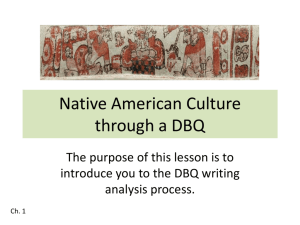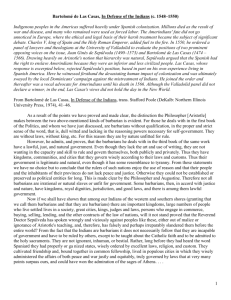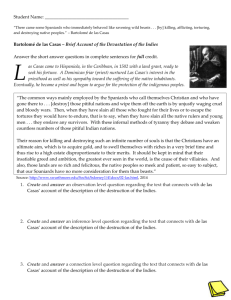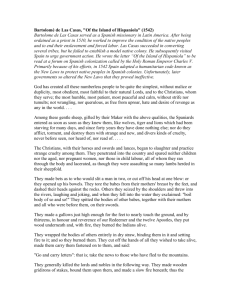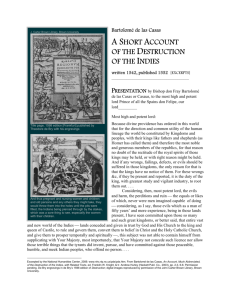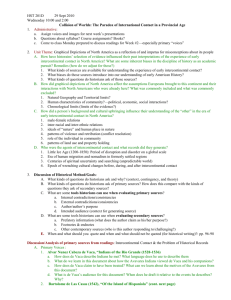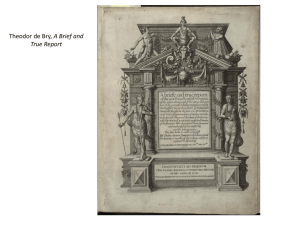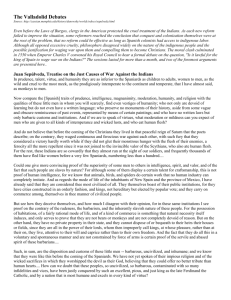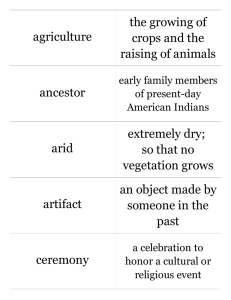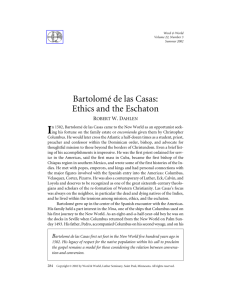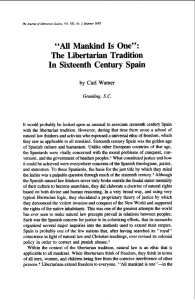Las Casas and Sepulveda
advertisement
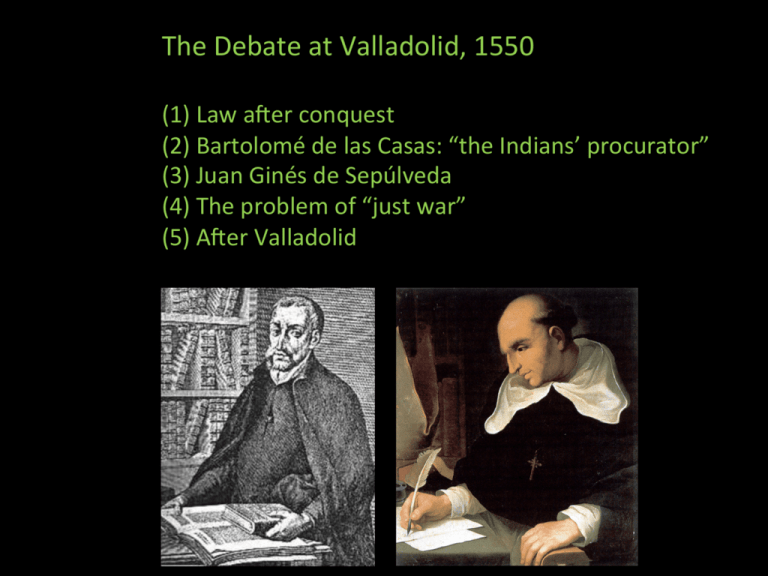
The Debate at Valladolid, 1550 (1) Law a6er conquest (2) Bartolomé de las Casas: “the Indians’ procurator” (3) Juan Ginés de Sepúlveda (4) The problem of “just war” (5) A6er Valladolid some terms: requerimiento: “requirement” to announce a declaraRon of sovereignty derecho indiano: “law of the Indians” based on royal decrees, judges’ decisions, deliberaRons of the Council of the Indies repar1miento: a rotaRng labour dra6 to meet public needs. Bartolomé de las Casas 1484-­‐1566 religious challenge? moral challenge? legal challenge? Las Casas’ copy of Columbus’ diary of his first voyage Brevísima relación de la destruición de las Indias, 1552 Charles V of Spain New Laws of 1542 InstrucRons for Valladolid: (1) “to determine as far as you can whether the atrociRes reported to me are true” (2) “to recommend a suitable plan by which such evils might be avoided” InstrucRons for Valladolid: (3) “to inquire into and develop the forms and laws to preach our Holy Catholic Faith in the New World” (4) “to examine how those people may be subjected to Us, without damage to Our conscience, according to the bull of Alexander.” Juan Gines de Sepúlveda 1490-­‐1573 jurist and royal historiographer author of: Democrates alter, sive De jus1s belli causis apud Indios [A Second Democritus, or On the Just Causes of War against the Indians] Just war: jus ad bellum “the right to go to war” jus in bello “right conduct in war” Just war: jus ad bellum “the right to go to war” jus in bello “right conduct in war” Salamanca school (Francisco de Vitoria 1483-­‐1542) ius gen1um “law of peoples” common good greater than naRonal good (natural law) Juan Gines de Sepúlveda’s four arguments: (1) “that these people are barbaric, uninstructed in lefers and the art of government, and completely ignorant, unreasoning, and totally incapable of learning anything . . .; are sunk in vice, are cruel . . . “that the Indians are obliged by natural law to obey those who are outstanding in virtue and character. . . “that if the Indians, once warned, refuse to obey this legiRmate sovereignty, they can be forced to do so for their own welfare. Juan Gines de Sepúlveda’s four arguments: (2) “that the Indians, even though unwilling, must accept the Spanish yoke so that they may be corrected and be punished for their sins and crimes against divine and natural law . . ., especially their idolatry and the impious custom of human sacrifice. . . Juan Gines de Sepúlveda’s four arguments: (3) “that the injuries and extreme misery which the Indians used to inflict and. . . sRll inflict today on a great number of persons, whom they used to sacrifice each year to the evil spirit, should be stopped. . . . “that all who can do so are held by natural and divine law to defend any and all persons from such injuries, for all men are neighbours to one another and brothers. . . . Juan Gines de Sepúlveda’s four arguments: (4) “that once those regions have been brought under control, the gospel of Christ can be preached by consecrated men safely and without danger. . . . “that it is totally just, as well as most beneficial to these barbarians, that they be conquered and brought under the rule of the Spaniards, who are worshippers of Christ. . . . “that Alexander VI . . . declared armed expediRons against the Indians to be just, that he allowed the Kings of CasRle to conquer them and add them to their empire. . . . Bartolomé de las Casas’ counter-­‐arguments: (1) “that it is unlawful to force the Indians to the faith by war, or by the misfortunes of war to make them hate the ChrisRan religion, by whose preaching they see so many regrefable evils inflicted on them. Bartolomé de las Casas’ counter-­‐arguments: (2) “that Alexander VI commended Ferdinand and Isabella’s proposal to subject the naRve and inhabitants to themselves and to lead them to the Catholic faith, . . . “that they subjugate (that is, dispose) them for the faith in a way in which one should subjugate a most civilized, sincere, naked, docile, decent, and peaceful people . . . “that “subject” should be interpreted as “dispose” . . . for it was very easy for our rulers to subject that people to their authority without the disturbances of war. Bartolomé de las Casas’ counter-­‐arguments: (3) “The kings are commanded to have as their purpose leading the Indians to the faith. It is granted that subjecRon to their rule is filng and helpful for afaining this purpose; sRll it must be proporRonate and suited to that purpose, which is specifically the spread of the glory of the divine name and the conversion of those peoples. . . . Bartolomé de las Casas’ counter-­‐arguments: (4) “War is not a suitable means for spreading Christ’s glory and the truth of the gospel. . . . “Since war should not be waged unless there has first been a provocaRon by the person against whom warfare is being prepared toward the one who is waging the war, it follows that war against the Indians is unlawful. Bartolomé de las Casas’ counter-­‐arguments: (5) The Kings of CasRle can neither directly nor indirectly do anything that is opposed to the spiritual or even the temporal development of those peoples. Therefore the word “subject,” as contained in the papal bull, has to be understood in a civilized and ChrisRan way. . . . In the final rule of the rules of law, it is said that anyone who understands the words of the law and yet works against the will of the law violates the law. . . . The Pope’s intenRon was that those peoples be . . . led to the faith by meekness, charity, holy conduct, and the word of God, not by war, of which the Pope never dreamed. . . . * The Arguments at Valladolid SEPULVEDA argued for the need for: (1) external moral authority (2) correcRve acRon (3) responsibility to protect (4) beneficial conquest LAS CASAS argued for the need for: (1) illegality of war without provocaRon (2) equal treatment (3) proporRonality (4) right of independent development Brevísima relación de la destruición de las Indias, 1552 Brevísima relación de la destruición de las Indias, 1552 IllustraRon by Joost de Winghe, published by Theodor de Bry (1596) Brevísima relación de la destruición de las Indias, 1552 IllustraRon by Joost de Winghe, published by Theodor de Bry (1596) U.N. ConvenRon on the PrevenRon and Punishment of Crimes of Genocide, 1948 ArRcle 2. In the present ConvenRon, genocide means any of the following acts commifed with intent to destroy, in whole or in part, a naRonal, ethnical, racial or religious group, such as: (e) Forcibly transferring children of the group to another group.
